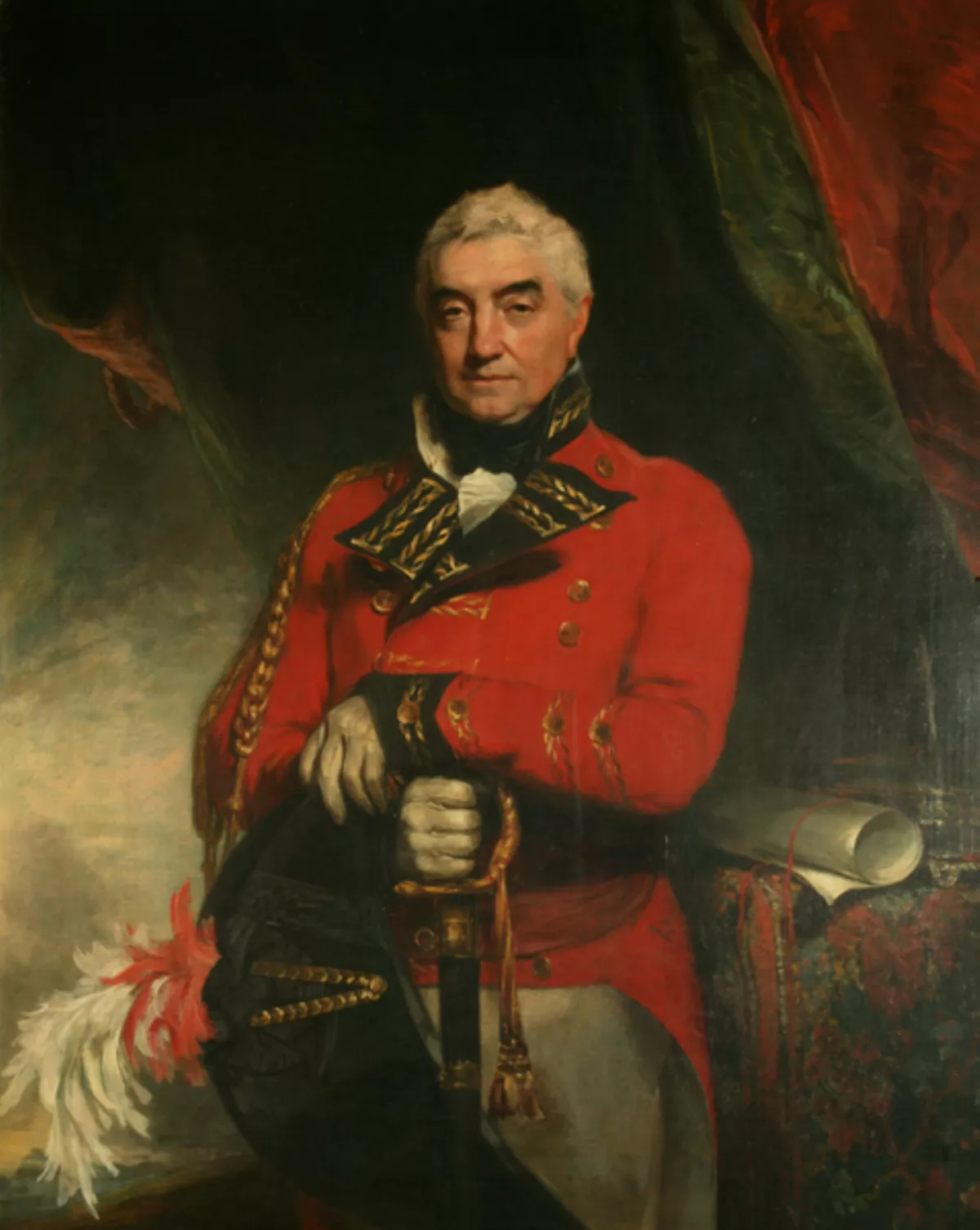 1.
1. Sir Barry Close, 1st Baronet was an army general in the East India Company and a political officer.

 1.
1. Sir Barry Close, 1st Baronet was an army general in the East India Company and a political officer.
Barry Close was born at Elm Park in Armagh, the third son of Maxwell Close and his wife Mary.
The family had moved from Yorkshire to Ireland during the reign of Charles I Barry joined the Madras army as a fifteen-year-old cadet in 1771 after his early schooling in Ireland.
Barry Close was commissioned an ensign with the Madras infantry in 1773 and rose to become an adjutant of the 20th battalion in 1777.
Barry Close saw action in the defence of Tellicherry against Hyder Ali and his General Sirdar Khan in 1780.
Barry Close gained a reputation as a linguist and chose to conduct all business with the sepoys in their own language.
Barry Close demonstrated his diplomatic talent when he served under James Stuart, commander-in-chief of the Madras army who was dismissed by Lord Macartney for not attacking the French.
Barry Close served as deputy adjutant-general of the Madras army during the Siege of Seringapatam.
Barry Close founded the Madras military fund and promoted the formation of a permanent police committee to improve the law and order of Madras.
Barry Close was then posted to deal with the Mysore rulers drafting treaties with them.
Barry Close was made he first resident in the court of Mysore.
Barry Close was to negotiate with the nawab of Arcot and was later posted resident at the Peshwa court in Poona.
Barry Close intervened to solve a mutiny in Madras by British officers by talking to the sepoys in their language exhorting them not to follow the dissenting officers.
Barry Close was promoted to major-general in 1810 while he was on leave in Britain.
Robert Hobart, 4th Earl of Buckinghamshire, who was then the President of the Board of Control, exerted his influence to have Barry Close created a baronet by the prince regent on 12 December 1812.